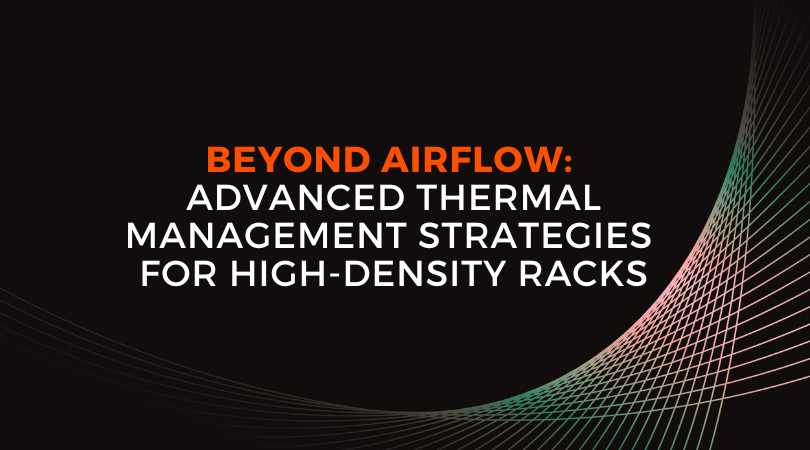If you’re trying to cool today’s high-density racks with yesterday’s airflow strategies, you’re headed for trouble. The heat generated by modern servers, especially those powering AI and high-performance computing, is simply overwhelming traditional air-cooling methods.
There’s a fundamental shift in the thermal landscape, and it demands a fundamental shift in how we approach cooling.
At Donwil, we don’t deal in maybes. We engineer solutions. And when it comes to high-density racks, that means going beyond airflow. It’s about deploying advanced thermal management strategies that can actually handle the heat, protect your investment, and ensure maximum performance.
The Problem: Airflow is Hitting Its Limit
Traditional data center cooling, based on CRAC units and hot/cold aisle configurations, was designed for a different era. As rack densities climb, pushing past 20, 30, even 50 kW per rack, airflow becomes increasingly inefficient. You end up with:
- Hot Spots: Air simply can’t remove heat quickly enough, leading to localized overheating and potential equipment failure.
- Reduced Performance: Servers throttle back to prevent damage, sacrificing performance and slowing down critical applications.
- Increased Energy Costs: You’re pumping more and more air, wasting energy and driving up your power bill.
- Limited Scalability: Your cooling infrastructure becomes a bottleneck, preventing you from deploying the latest, most powerful hardware.
The bottom line: if you want to run high-density racks effectively and reliably, you need to think beyond airflow.
The Solution: Advanced Thermal Management Strategies
So, what are the alternatives? At Donwil, we’re experts in deploying a range of cutting-edge cooling solutions, each tailored to specific needs and environments. Here are some of the key players:
1. Liquid Cooling: Direct and Efficient Heat Removal
Liquid cooling leverages the superior heat transfer capabilities of liquids to remove heat directly from server components. This can take several forms:
- Direct-to-Chip (D2C): Coolant is circulated through cold plates attached directly to CPUs, GPUs, and other heat-generating components. This is incredibly efficient for high-wattage processors.
- Rear Door Heat Exchangers (RDHx): Liquid-cooled heat exchangers are mounted on the rear doors of racks, capturing heat as exhaust air passes through. This is a less intrusive option for retrofits.
The Benefits:
- Significantly higher cooling capacity compared to air.
- Reduced energy consumption and lower PUE (Power Usage Effectiveness).
- Enables higher rack densities and improved performance.
- Lower noise levels compared to high-speed fans.
2. Immersion Cooling: Submerging Servers for Maximum Heat Removal
Immersion cooling takes liquid cooling to the next level by completely submerging servers in a dielectric fluid. This provides unparalleled heat removal capabilities, allowing for extreme rack densities.
- Single-Phase Immersion: Servers are submerged in a fluid that remains in a liquid state.
- Two-Phase Immersion: The fluid boils at relatively low temperatures, absorbing heat as it changes phase from liquid to vapor.
The Benefits:
- The highest possible cooling capacity, enabling the densest deployments.
- Extremely low PUE and significant energy savings.
- Reduced server footprint and increased space utilization.
- Potential for heat reuse.
3. Hybrid Solutions: Combining Air and Liquid for Optimal Efficiency
In many cases, a hybrid approach, combining traditional airflow with targeted liquid cooling, provides the most cost-effective and practical solution. For example, you might use RDHx for most racks and D2C for a few high-density, GPU-heavy servers.
The Future is Cool: Don’t Get Left Behind
The shift to high-density computing is the new reality. And if you want to stay competitive, you need to embrace advanced thermal management strategies. Don’t let your cooling infrastructure become a bottleneck. Contact Donwil today, and let’s build a solution that keeps your racks running cool and your business running strong.

